
Your need-to-knows about feline infectious peritonitis (FIP)

Dr Scott Miller
15 September 2023 | 4 minutes read
Over recent months there’s been a high number of feline infectious peritonitis cases in Cyprus. Although the disease is rare and has been around for years, some UK cat parents may be feeling worried.
Below, expert vet Dr Scott Miller shares how to recognise and keep your kitty safe from this rare strain of feline coronavirus.
- What is feline infectious peritonitis (FIP)?
> How does a cat get FIP? - What are the symptoms of feline infectious peritonitis?
- Diagnosing feline infectious peritonitis
- How to treat feline infectious peritonitis
- How to prevent feline infectious peritonitis
- Other questions about FIP
> Can cats get COVID?
> Is FIP contagious to humans?
> Is FIP contagious to dogs?
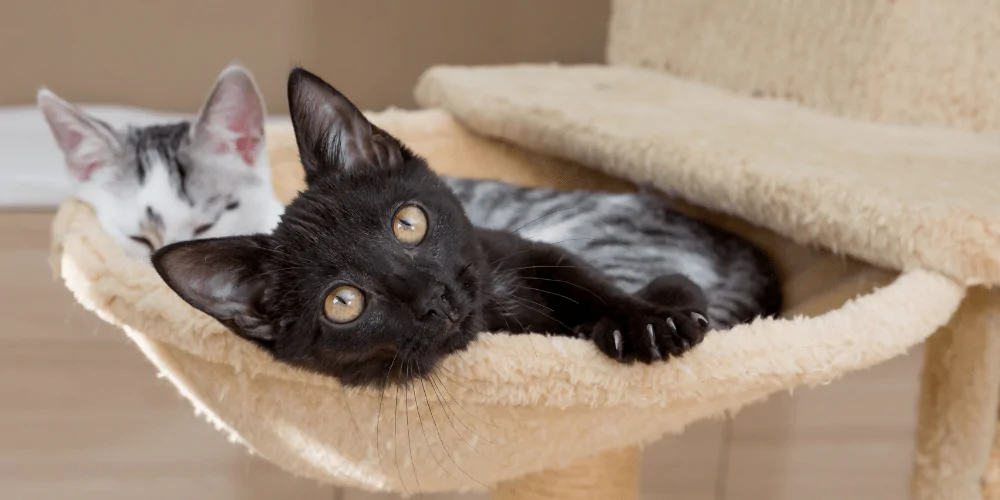
What is feline infectious peritonitis (FIP)?
Feline infectious peritonitis (FIP) is an infectious strain of feline coronavirus (FeCV) that can come in wet (effusive) and dry (non-effusive) forms.
Wet FIP causes a build-up of fluid in the abdomen and chest while dry FIP causes inflammation and changes to develop in the lungs.
Feline coronavirus is more common in shelters and multi-cat households as it’s a contagious virus that can spread easily through shared spaces.
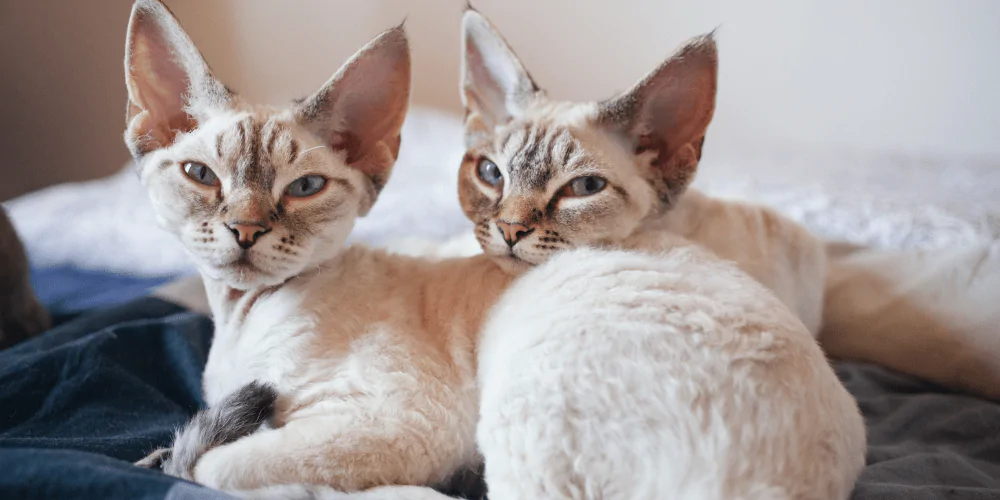
> How does a cat get FIP?
Cats can pick up feline coronavirus:From faeces, urine, saliva, and blood of infected cats, especially if they are sharing bowls and litter trays
- As kittens if their mum is infected while pregnant
Many cats will be able to fight off the virus, while others become infected. In rare cases, this will then develop into FIP. It’s not yet known what makes FeCV mutate into FIP, although it’s been suggested that possible causes may include:
- Age
- Stress
- Weak immune systems
Any cat can catch the disease but some breeds may be more vulnerable to it, including:
- Devon Rex
- Ragdoll
- Bengal
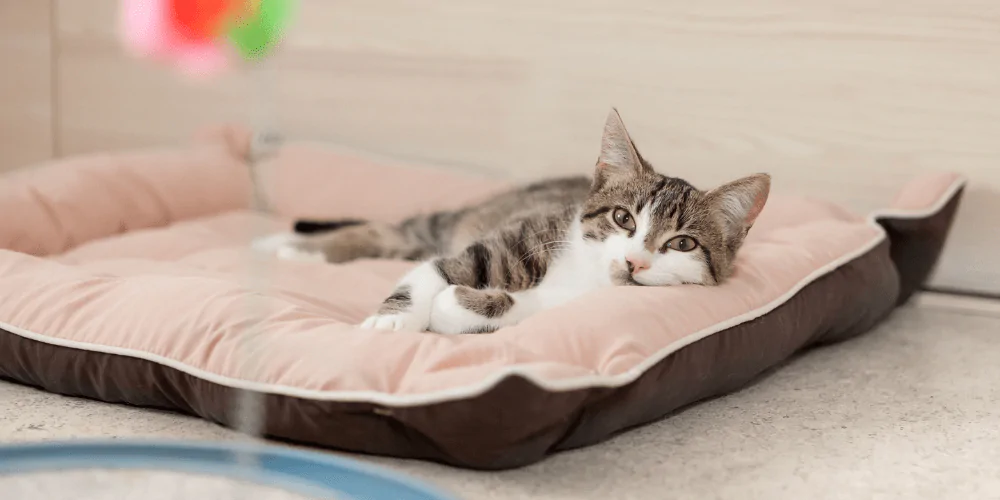
What are the symptoms of feline infectious peritonitis?
The symptoms of FIP depend on which form of the virus your cat has developed. Always speak to your vet if you’re worried your feline is poorly.
Signs of wet FIP
- Loss of appetite
- Difficulty breathing
- Swollen abdomen
Signs of dry FIP
- Lethargy
- Increased thirst and urination
- Weight loss
- Jaundice
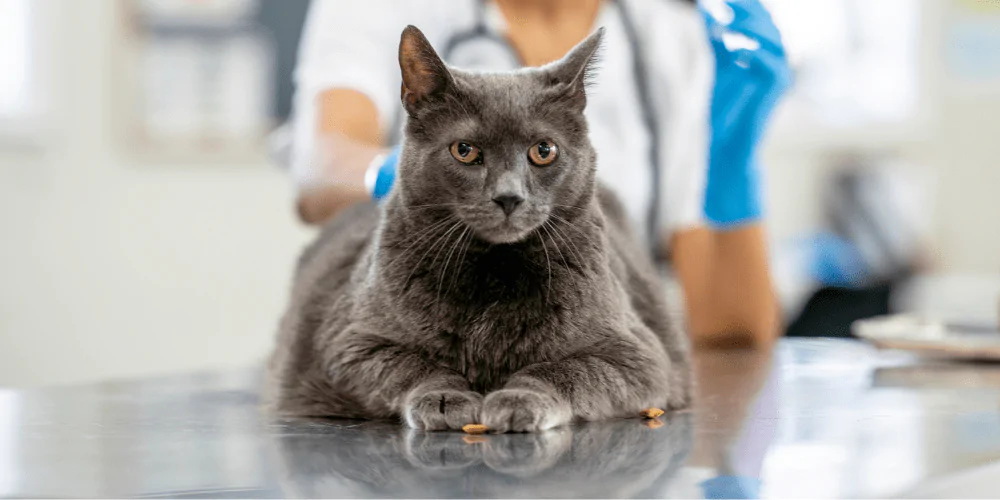
Diagnosing feline infectious peritonitis
Diagnosing FIP is difficult as there are currently no specific blood tests and symptoms of the disease can also be linked to other conditions.
Your vet will run different tests and scans to check for:
- Inflammation
- Fluid build-up
- Other abnormalities
- Coronavirus titer levels
If your cat is well enough then your vet may perform a biopsy on some of the inflamed tissue.
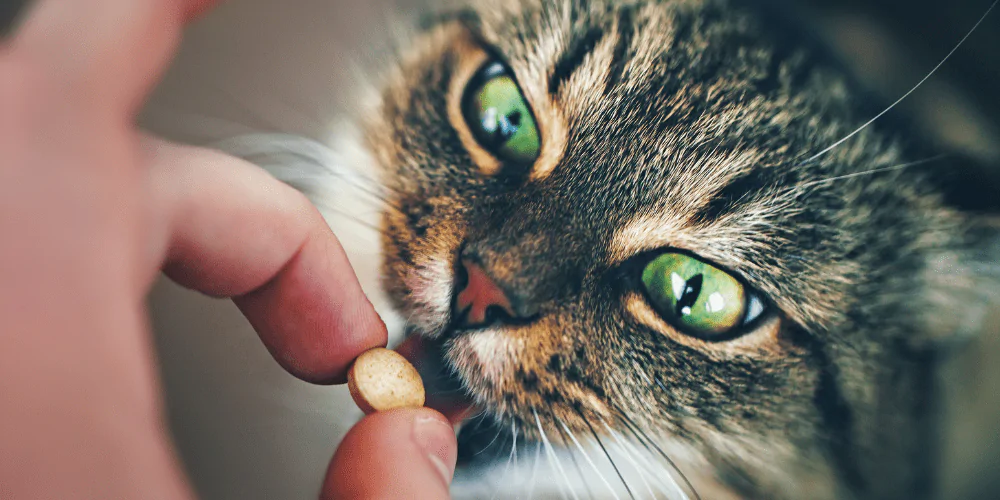
How to treat feline infectious peritonitis
Treating FIP involves making your cat as comfortable as possible.
They may be prescribed antibiotics to treat the infection and pain medication to give your kitty relief. Your vet will recommend the most appropriate treatment for your cat’s needs.
In the UK, there are two drugs approved for use in cats with FIP. Treatment for FIP that uses these drugs takes roughly 12 weeks and involves:
- Admitting your cat to a vet hospital for a few days on an antiviral drip.
- Following up with injections of an antiviral drug for up to a fortnight. Your cat will initially stay with the vet so they can watch closely for side effects. If all is well, you may be able to treat then them at home.
- Using an oral antiviral to avoid relapses. This varies for each cat but may be for a prolonged period to life.
Treatment costs can vary depending on what your vet recommends. Antiviral drugs are approved for use with animals in the UK but can be very expensive.
For example, the total cost of antiviral treatment can range from £2,500 to £6,000 for a cat weighing between 3 – 4kg.
That’s why it’s important to think about having cover in place. Learn more about how to choose the right pet insurance for your feline.
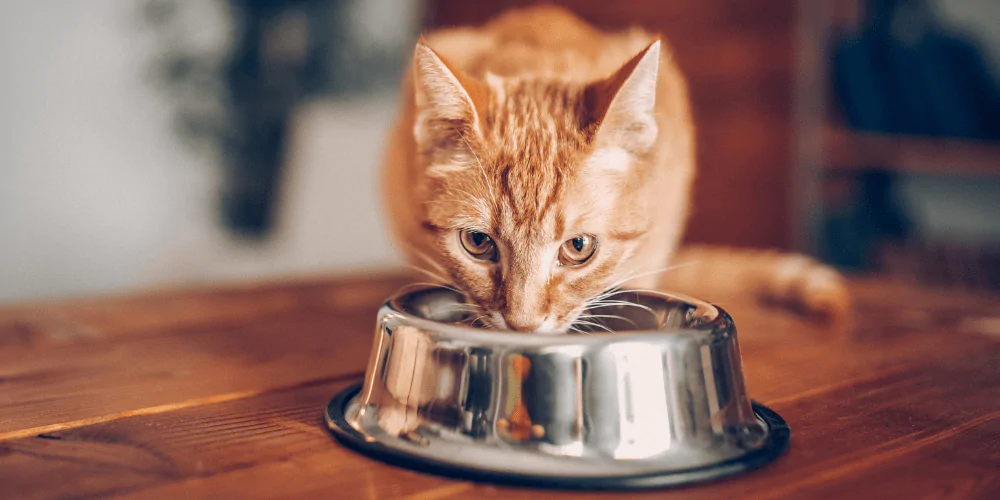
How to prevent feline infectious peritonitis
The only way to avoid feline infectious peritonitis is to stop your cat from getting feline coronavirus. Hence avoiding any contact with other cats.
Although it’s difficult to fully prevent this from happening, you can take sensible steps to keep your cat healthy. This includes:
- Cleaning litter trays on a daily basis
- Placing food and water bowls away from litter trays
- Keeping up to date with your cat’s regular annual vaccinations
- Keep an eye out for symptoms or any signs that your feline is poorly
- Improving outdoor fencing or thinking about keeping cats indoors if you know of FIP cases in the area
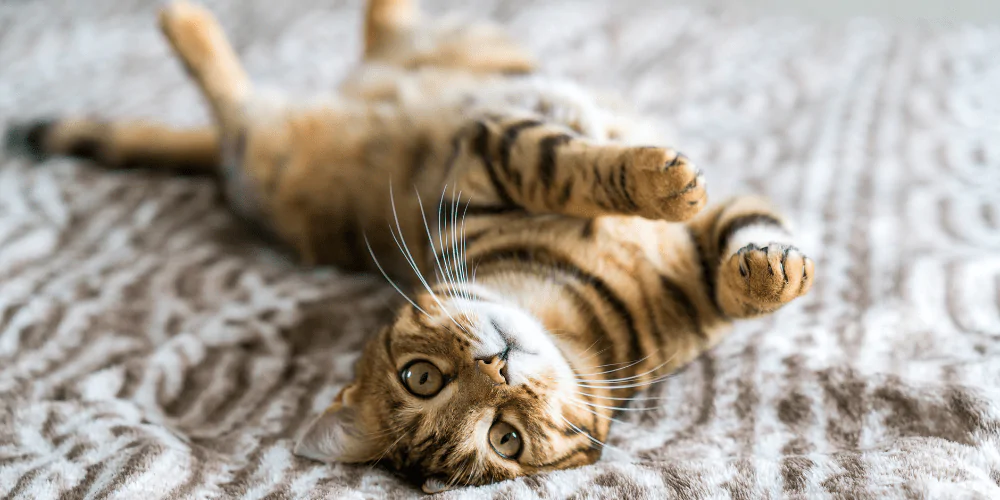
Other questions about FIP
> Can cats get COVID?
Cats can get poorly from their own strain of COVID, known as feline coronavirus.
COVID-19 is very rare in cats and only mild symptoms have been reported in the small amount of cases picked up by vets.
It’s possible for your cat’s fur to be a carrier of COVID-19, like many other surfaces. So take the normal precautionary steps if you think someone in the house is infected with the virus by reducing or avoiding contact.
> Is FIP contagious to humans?
Feline coronavirus and feline infectious peritonitis only affect cats and not humans, so there’s no risk of it passing on to you.
> Is FIP contagious to dogs?
Dogs can be affected by different strains of coronavirus to cats. These are known as canine enteric coronavirus (CECoV) and canine respiratory coronavirus (CRCoV).
Keep your favourite feline happy and healthy with flexible cat cover from Petsure pet insurance.


